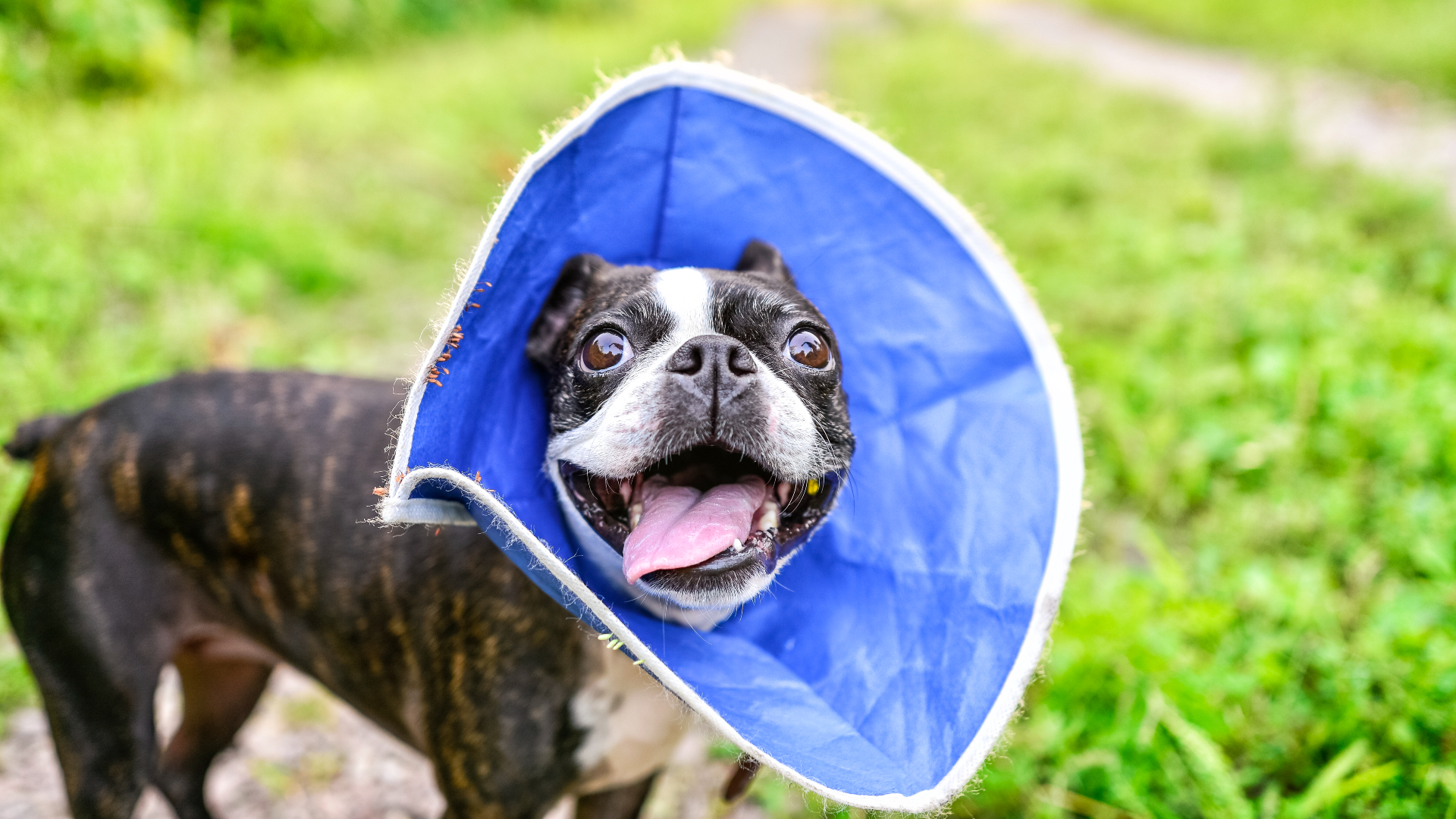
Why do dogs and other animals lick their wounds?
What works in the wild isn't always best for pets.

The saying "to lick one's wounds" is a metaphor that's synonymous with retreating and recovering from an injury, and the behavior is observed in some pets and other animals. Dogs do it; mice do it; even ants do it. All sorts of critters apply their saliva to scratches and scrapes. But why do these animals lick their wounds?
The answer lies largely in the self-soothing actions of licking and the healing properties of spit. Wound licking is an instinctual response, honed by natural selection, that may assuage irritation and pain and might even help injuries recover faster, according to Dr. Benjamin Hart, a retired veterinarian and professor emeritus at the University of California, Davis. But in dogs and other pets, the instinct can easily become counterproductive, especially when there are far better wound treatments available.
For animals "without thumbs or medication," licking is "the best they probably have," said Dr. Kristi Flynn, a veterinarian and animal behavior expert at the University of Minnesota. Licking can remove debris, such as dirt or bits of stray skin, from a wound, while helping to alleviate soreness, Flynn said. It's similar to how a person might rub their foot after stubbing a toe or clutch their arm after leaning against a hot stove. "When [animals] feel pain, it's a natural inclination to try to soothe an area," Flynn told Live Science.
Related: Why do cats and dogs rub their butts on the floor?
Hart agreed. "Licking wounds is an instinct in dogs that goes way back to the wolf ancestor," Hart told Live Science. "They've got a wound; they've got an instinct to lick it: keep it clean and wash off the dirt and the grime." And beyond the immediate attempt to soothe, the research of Hart and others has shown that some animals' saliva (including humans) has antibacterial and tissue and nerve growth-promoting properties that speed healing.
For example, dog saliva is effective at killing Streptococcus canis, a form of strep that primarily infects animals, and E. coli bacteria, according to a 1990 study co-written by Hart and published in the journal Physiology & Behavior. Another 2018 study comparing canine and human saliva from the journal PLOS One found multiple immune and cell growth proteins specific to dog saliva. Meanwhile, rodent spit contains compounds that promote skin growth and wound closure, according to a 1979 study in the journal Nature and a 1991 study in the journal Experimental Gerontology. Similar growth factors are also found in small quantities in human saliva, according to a 2019 study in the Archives of Oral Biology.
However, in the age of modern medicine for both pets and people, wound licking can cause more harm than good, which is why cats and dogs often come home from the vet wearing a plastic collar. Licking a surgical wound site can damage or pull out sutures, and this "makes a very small lesion into a big, big mess," Flynn said. Dogs are especially prone to excessive licking, which can prevent injuries from healing. "They make a mountain out of a molehill and just don't have the judgment to stop," Flynn said.
Sign up for the Live Science daily newsletter now
Get the world’s most fascinating discoveries delivered straight to your inbox.
Licking wounds can also increase the risk of infection by introducing mouth bacteria to the injured site, Flynn added. Though saliva has some antibacterial properties, it's not a universal germ killer. For instance, Hart's 1990 research revealed that canine spit didn't kill Staphylococcus, a genus of bacteria that cause staph infections and are commonly found in wounds.
So, if wound licking is not particularly beneficial, why did it evolve and persist over many generations?
"Things that evolve aren't 100% correct," Hart said. "They have to be useful 75% of the time or 50% of the time, and they'll still be maintained by natural selection because it's better than nothing."
But modern science and medicine usually advance faster than evolution. Wound licking is a good solution for wild animals with no other alternatives. For owners of pet cats and dogs, however, it's better to listen to a veterinarian's advice.
Originally published on Live Science.

Lauren Leffer is a freelance science and environmental journalist based in Brooklyn, New York who will soon be a breaking news reporter at Gizmodo. She writes on topics such as wildlife, the climate crisis, biotech and health equity. Her work has been published in National Geographic, Popular Science, Audubon Magazine, Sierra magazine and elsewhere. Lauren graduated from University of Maryland with a bachelor's degree in biology and New York University with a master's in science journalism. Previously, she's worked as a research biologist, entomologist, park naturalist and curriculum writer.









